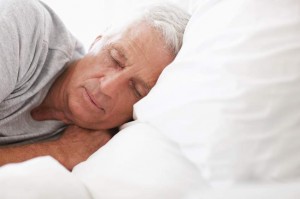Few people understand the importance of sleep as a factor in achieving exercise and training goals. Most people focus on exercise strategy and nutrition to achieve their optimal health; while they ignore the significance of sleep in exercise-recovery. We must keep in mind that exercise is, undoubtedly, the impetus to which our body will adjust, but enough rest is needed to give time for such physiological adaptations to occur.
Adequate sleep is indispensable for everyone (including athletes) to give better performance, whether it is strength training, cycling, or running. While exercise assists with achieving better sleep; an adequate amount and quality of sleep is required for exercise recovery. So, if you exercise, you need to ensure you take control of your sleep to avoid the risk of injury, allow your body to recover optimally, and to enable the positive physiological adaptations to occur from exercise within your body.
How does sleep assist in the recovery from exercise? The following list outlines the significance of sleep in your recovery from exercise and to optimize your potential from your training.
- Sleep repairs muscles and tissues, replaces dead cells–When you exercise, your energy is depleted and there is micro tearing of your muscles. To help replenish nutrients in our body and rebuild muscles, our body requires adequate sleep. Sleep serves several important functions. For bodybuilders and athletes, sleep offers growth and mental alertness. During sleep, your body releases human growth hormone (HGH). Human growth hormone is vital for the repair and rejuvenation of your body. Poor quality sleep or inadequate sleep has a negative effect on the production of HGH levels.
- Sleep recharges your brain—When you are sleeping, your hormones and endocrine system are active. Deprivation of sleep raises the stress hormone cortisol in your body. Sleep deprivation also lowers the production of carbohydrates and glycogen stored in your body, needed for energy usage during any type of physical activity. Sleep does not just give us rest, in fact, it recharges our brain and nervous system. And when our mental alertness is maximum, it boosts our motivation Your fitness levels are likely to decline if you do not allow your central nervous system to recover and regenerate. In short, you will feel weaker and have less coordination during your workout.
- Better sleep results in better workouts— Quality sleep during the night helps your body get better prepared for your next days workout. On the contrary, lack of adequate sleep will make your training the next day more difficult and perhaps ‘sluggish’. When you effect the quality of workouts by having less sleep – your effectively diminish the gains you will achieve through training. Furthermore, when your nervous system is not recovering; And if you overstretch your body during lack of energy, you will end up getting injuries.
- Lowered Energy Consumption during Sleep—Energy consumption during sleep is lowered. Whilst you are sleeping, all your body needs to do is breathe, rejuvenate muscle and tissues, and raise hormone levels. Lance Walker, the Global Director of Performance at Michael Johnson Performance (MJP, a McKinney, Texas based next-level training facility). If you don’t get sufficient or quality sleep, the ability of your body to heal itself is significantly impacted.
- Sleep Betters Sports Performance—Several researches have maintained that good and deep sleep has a direct role in improving sports performance. That’s because growth hormone gets released during sleep and this boosts muscle repair and growth, burning of fat, building of new bones and aids recovery of athletes.

How much sleep is enough?
According to sleep experts, adults require between seven to nine hours of sleep while adolescents and teenagers require around nine to ten hours of sleep per night.
As such, you must give priority to sleep and try to follow a routine of going to sleep and get up at same time each day. And when we use the term ‘sleep’, we mean to say quality sleep.
So, Sleep your way to stimulate recovery from exercise and Here’s Wishing You a Good Night Sleep Every Night!!!
